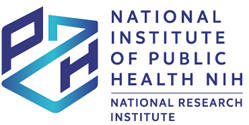Sugar-Sweetened Beverage Consumption and Risk of Visceral Fat Accumulation Among University Students in Thailand
1
Department of Occupational Health and Safety, School of Public Health, Walailak University, Thailand
2
Food Technology and Innovation Research Center of Excellence, Walailak University, Thailand
3
Department of Community Public Health, School of Public Health, Walailak University, Thailand
4
Department of Chemical Engineering and Pharmaceutical Chemistry,
School of Engineering and Technology, Walailak University, Thailand
5
Biomass and oil palm center of excellence, Walailak University, Thailand
Data nadesłania: 26-01-2025
Data ostatniej rewizji: 25-05-2025
Data akceptacji: 04-06-2025
Data publikacji online: 09-06-2025
Data publikacji: 26-06-2025
Autor do korespondencji
Suwichak Chaisit
Department of Chemical Engineering and Pharmaceutical Chemistry, School of Engineering and Technology, Walailak University, Nakhon Si Thammarat 80160, Thailand
Department of Chemical Engineering and Pharmaceutical Chemistry, School of Engineering and Technology, Walailak University, Nakhon Si Thammarat 80160, Thailand
Rocz Panstw Zakl Hig 2025;76(1):75-85
SŁOWA KLUCZOWE
sugar-sweetened beverages (SSBs)visceral fat accumulationbody composition assessmentadolescent healthmetabolic health risksdietary assessment
DZIEDZINY
STRESZCZENIE
Background: Increased consumption of sugar-sweetened beverages (SSBs) is associated with obesity and metabolic health risks. Objective: This study determined the relationship between SSB intake and body composition, with a focus on visceral fat accumulation among Thai university students. Material and Methods: A cross-sectional study was conducted with 387 university students aged 19-22 years. Dietary intake was assessed using a 3-day, 24-hour dietary recall conducted on three consecutive day to quantify SSB consumption. Body composition metrics, including body mass index (BMI), fat mass, and visceral fat levels (VFL), were measured using bioelectrical impedance analysis. Statistical analyses, including t-tests and linear regression, were used to identify the associations between SSB intake and body composition. Results: Sweetened tea, particularly freshly prepared iced milk tea, was most frequently consumed. High sugar consumption from SSB (≥ 24 g/day) was significantly associated with increased fat mass (16.9 ± 9.9 vs. 14.8 ± 7.8 kg, p = 0.021), BMI (22.6 ± 5.0 vs. 21.3 ± 4.2 kg/m², p = 0.007), and VFL > 9 (83.3% vs. 16.7%, p = 0.013). Sugar intake increased progressively across BMI categories: underweight (25.21 g/day), normal-weight (28.78 g/day), overweight (32.18 g/day), and obese (34.00 g/day). Participants with a VFL above 9 consumed over 40 g/day of SSB-derived sugar. At VFL exceeding 10, males had an average BMI of 30.06 ± 2.40 kg/m², whereas females exhibited a dramatically higher BMI of 41.20 ± 3.27 kg/m². Conclusions: Excessive SSB consumption, particularly sweetened tea, is strongly associated with higher visceral fat and unfavorable body composition in young adults. Public health interventions targeting reduced SSB intake are urgently required to address obesity and metabolic health risks. Further longitudinal studies are recommended to confirm causality and inform dietary guidelines.
Udostępnij
Przetwarzamy dane osobowe zbierane podczas odwiedzania serwisu. Realizacja funkcji pozyskiwania informacji o użytkownikach i ich zachowaniu odbywa się poprzez dobrowolnie wprowadzone w formularzach informacje oraz zapisywanie w urządzeniach końcowych plików cookies (tzw. ciasteczka). Dane, w tym pliki cookies, wykorzystywane są w celu realizacji usług, zapewnienia wygodnego korzystania ze strony oraz w celu monitorowania ruchu zgodnie z Polityką prywatności. Dane są także zbierane i przetwarzane przez narzędzie Google Analytics (więcej).
Możesz zmienić ustawienia cookies w swojej przeglądarce. Ograniczenie stosowania plików cookies w konfiguracji przeglądarki może wpłynąć na niektóre funkcjonalności dostępne na stronie.
Możesz zmienić ustawienia cookies w swojej przeglądarce. Ograniczenie stosowania plików cookies w konfiguracji przeglądarki może wpłynąć na niektóre funkcjonalności dostępne na stronie.



